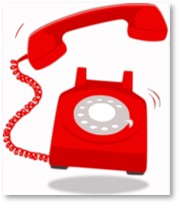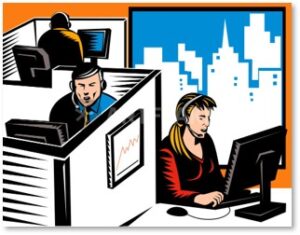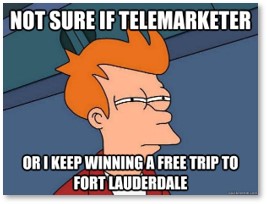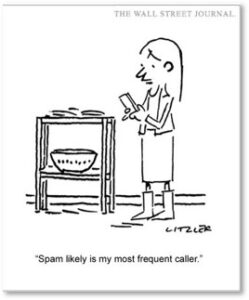 I am old enough to remember, when the phone rang, you answered it. You might wonder who was calling but you never suspected the person on the other end of trying to take your money. Of course, back then telephones had two parts connected by a coiled wire that sometimes got twisted up. Another cord attached it to the wall.
I am old enough to remember, when the phone rang, you answered it. You might wonder who was calling but you never suspected the person on the other end of trying to take your money. Of course, back then telephones had two parts connected by a coiled wire that sometimes got twisted up. Another cord attached it to the wall.
When the phone rang, it meant that someone was trying to call you personally. It might be a friend, a neighbor, someone from your church, a doctor or dentist, a member of a group you belonged to, or even a teacher. You answered because the call was probably important or someone you wanted to chat with.
Also, your number was publicly available: printed in a large book that sat on desks, tables, and library shelves. You could also find them in small kiosks on the street known as phone booths.
Cutting the Phone Cord
Today I saw an online quiz (which I lost in the flow) saying that most people don’t answer their cell phone if they don’t know who it is. The Pew Research Center sets that number at 80%. Now, I get that. The community nature of telephone communications has disappeared—driven out of existence by telemarketers, scammers, spammers, fund raisers, and crooks.
Most people, including us, no longer have a land line. We canceled ours when we realized that the only people who called on it were telemarketers, scammers, and fund raisers. Sorry, guys, we are now off limits to your sob stories and guilt trips.
Our cell phone numbers appear in print exactly nowhere.
Raising Questions About Polling
But that raises a few questions:
 How accurate can polling be if folks don’t answer calls from people they don’t know? How many of us have a pollster on our contact list? Who would want a pollster on their contact list? If those calls don’t even ring, much less get answered, what’s the point of using telephones to conduct polls?
How accurate can polling be if folks don’t answer calls from people they don’t know? How many of us have a pollster on our contact list? Who would want a pollster on their contact list? If those calls don’t even ring, much less get answered, what’s the point of using telephones to conduct polls?- If pollsters only use land lines, how can they possibly reach the millions of young Americans who wouldn’t know what to do with a phone that’s tethered to the home? Does this explain why political polling has been so inaccurate in the national elections?
- Who would answer a call from a fund raiser if you knew who was on the other end? I wouldn’t. How about you? I’ll wait.
- Knowing how judgmental Americans have become—and how eager they are to express any dislike of disagreement in the most vulgar and hostile terms—who would want their phone number to be publicly available? Do you want to encourage vulgar messages and death threats?
Expecting the Best
I grew up in a small town. Fortunately, it was not like Jason Aldean’s small town. My parents didn’t lock the door until we went to bed at night. What would have been the point with four kids running in and out of the house all day? Cars sat unlocked in parking lots. My siblings and I walked back and forth to school without incident. (It was uphill both ways, of course, and winter all year round. 😊)
We expected the best of people back then, not the worst. While the fifties and sixties were not ideal times by any stretch of the imagination, it was easier for our parents and us to go through life without fear.
A Long List of Reasons
 People often ask how America got to this point. If you don’t know, you haven’t been paying attention. I’m not going to put here a long list of good intentions that went awry, bad decisions with obvious results, men who promised one thing and delivered another, con artists, red herrings, lies, obfuscations, and scams.
People often ask how America got to this point. If you don’t know, you haven’t been paying attention. I’m not going to put here a long list of good intentions that went awry, bad decisions with obvious results, men who promised one thing and delivered another, con artists, red herrings, lies, obfuscations, and scams.
So, here we are today: suspicious of who might be calling us, refusing to talk to anyone we don’t know, reluctant to answer and ready to hang up. Our doors and our cars are locked. We avoid strangers and expect the worst.
It’s a sad state of affairs that seems to be growing worse by the day. I don’ believe in going backwards, which means looking ahead to a better future. If only I could see it.

